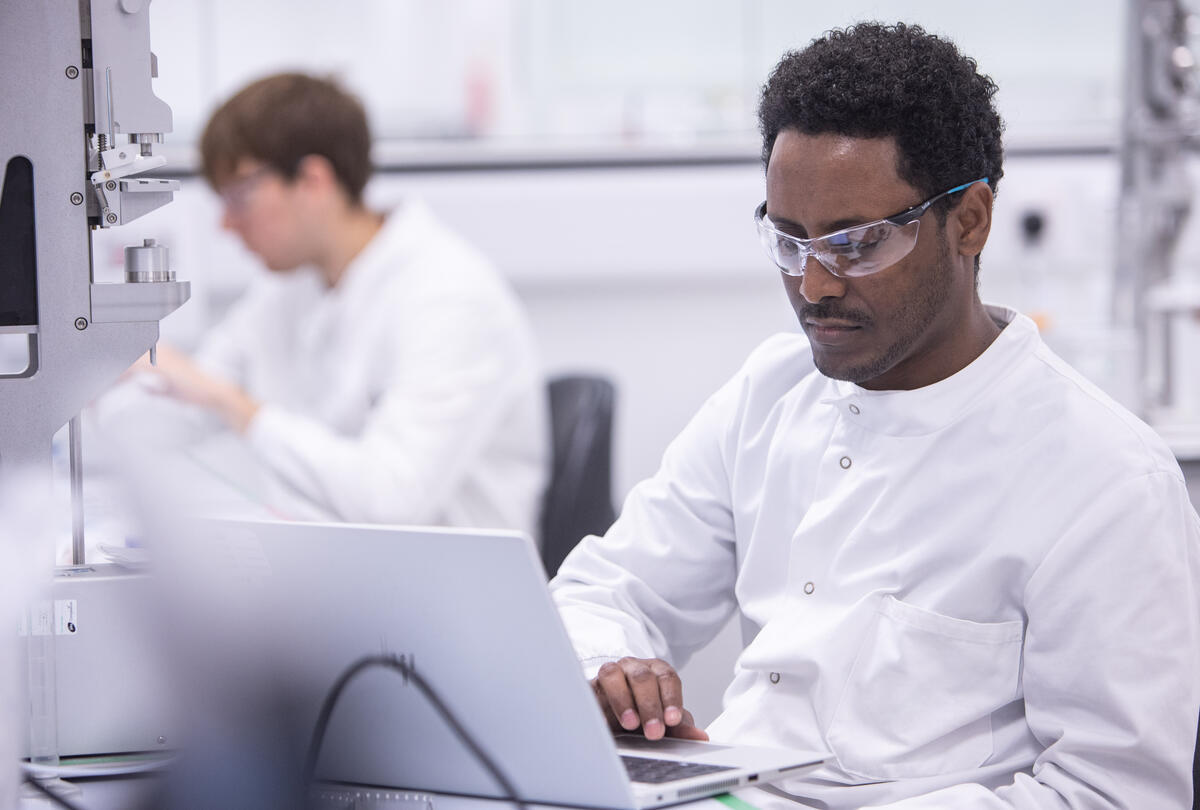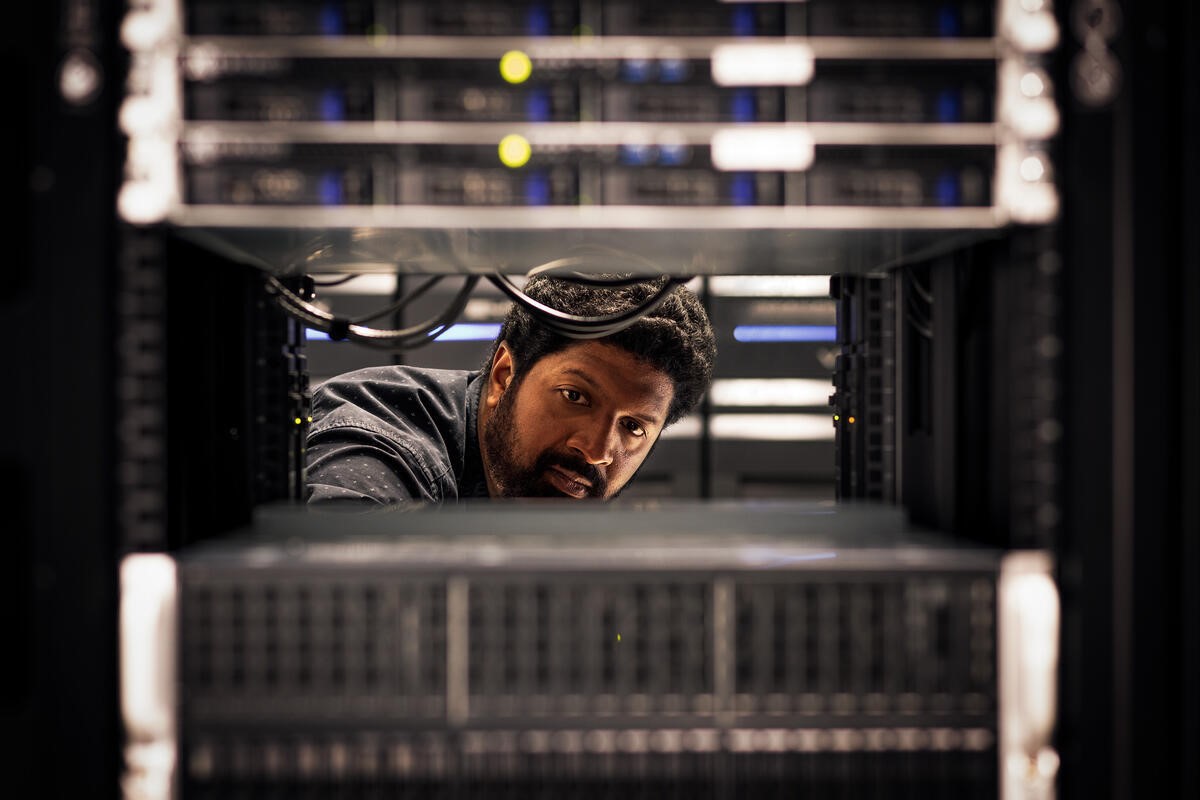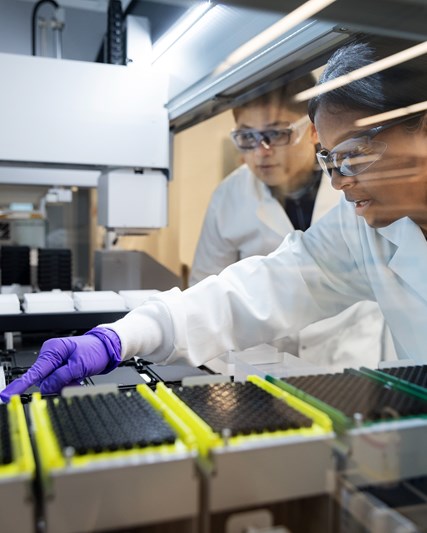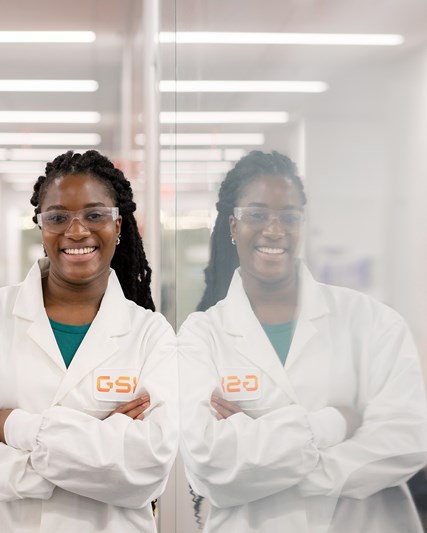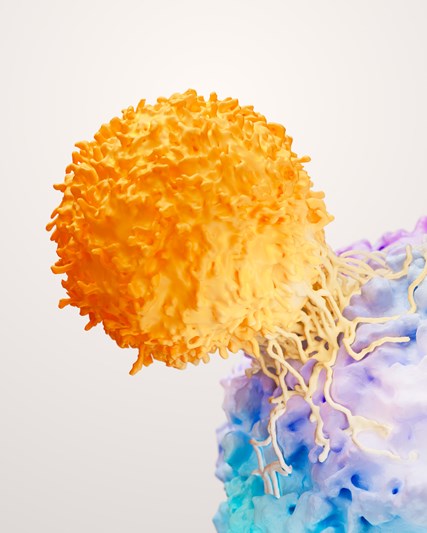Giving researchers access to rich biological data at scale is crucial to accelerating drug discovery. Here, Chris Austin, Senior Vice President of Research Technologies at GSK, explains why – and why a diverse skillset is needed to do this well and responsibly.
I began my career in healthcare more than 35 years ago, and I’ve never seen such huge potential for progress in the fight to prevent and treat disease as we have today.
Remarkable advances in both science and technology – from genetics to chemistry, biology and artificial intelligence (AI) and machine learning – allow us to make incredible new insights and drive forward drug discoveries. These advances present us with an opportunity to deepen our understanding of human biology and diseases in ways that weren’t possible back when I was in medical school.
In the very earliest steps of drug discovery, data plays a crucial role in helping us make smart decisions with greater precision and speed. That role continues through to clinical trials, where we use more data to help us understand and identify the patients most likely to benefit from a potential medicine or vaccine. Data technology is central to our approach at GSK, and having access to genomic data, real world evidence, and even our own retrospective clinical trial data, gives us information at an unprecedented scale.
To have real world impact, however, we also need to ensure that our data is high quality, accessible and always used responsibly with deep care. And we can’t do it alone.
Sharing safely
In fact, no one can. To make a real difference, we need to have public and private partners on our side willing to share access to data in a safe and ethical way. And that is no small task.
During my time at the National Institutes of Health (NIH) in the US, I was privileged to create the Clinical Data to Health initiative. The purpose of the project was to accelerate advancements in clinical informatics, including the first nationwide centralised data enclave of electronic health records from academic institutions. This enabled more dynamic research and was just the start of the journey to driving valuable insights through data accessibility. Data from healthcare practitioners, coupled with real-world data and well-curated clinical trial data can help create the infrastructure for rich, comprehensive data sets that, together with technology and the right analytics, can drive biological understanding of the human body and accelerate drug discovery.
To do this right, as we know, accessing data must be done respectfully, ensuring privacy and protection for the personal information of individuals. We must remember the human part of data: data points may seem abstract, but they represent real people. This reinforces how critical it is that we have safeguards in place for accessing and sharing data here at GSK, because there is a person behind that data point with a right to privacy.
Since I arrived at GSK, I’ve seen a clear focus on ensuring that trust and responsibility around data sharing is embedded into every aspect of the company’s culture, which exemplifies just how seriously it is – and should be – taken.
It’s no wonder so many great data sharing collaborations have already been formed. From the UK Biobank to the Alliance for Genomic Discovery, our scientists have access to a rich fabric of data to help them better understand diseases and the people they impact while minimising risk to others, and we continue to bring together the different datasets so it’s easier for our scientists to access, so we can learn and build from each experiment and not start over every time. We’ve also integrated AI/ML teams with our scientists so that they are working side by side to tackle the big questions.
Unlocking new mysteries
Advancing science to deliver medicines and vaccines that can truly impact patients’ lives is too important for us not to work together. We need talented scientists and tech experts to pool their skills together to interrogate, model and analyse the data. And we need diverse data sets from throughout the patient experience, even before disease develops, to enable us to create models in parallel to answer a range of questions at one time and adjust our research and development plans in the moment. This dynamic approach represents a new way of tackling research and development, all possible through data tech and incredible scientists.
There are millions and millions of patients around the world who urgently need our help. I have seen this personally in my time working around the world; throughout my time as a practicing doctor, I was humbled by – and curious about – our lack of understanding of disease, and how this stopped us from making meaningful interventions or being able to properly treat it.
Today, we’re standing right on the cusp of a new wave of discoveries. Imagine if we could predict how a particular disease would progress in an individual, and then prevent the disease before a person even got sick? Being part of an organisation like GSK that has the mission and tools to make this vision a reality inspired me to come to join the incredible team here.
Disease won’t wait for us to catch up, so we need to use advances in data availability and analyses, coupled with technological innovations and incredible expertise, to get ahead of it.

